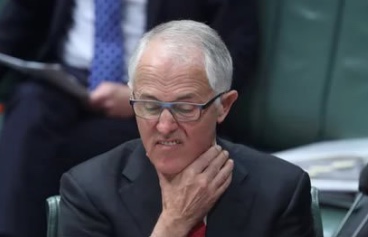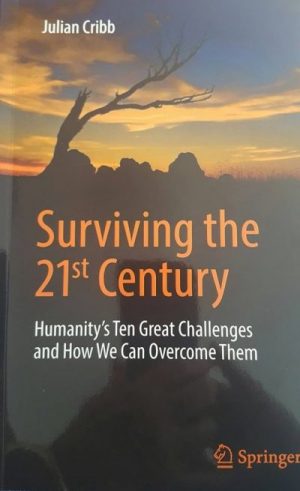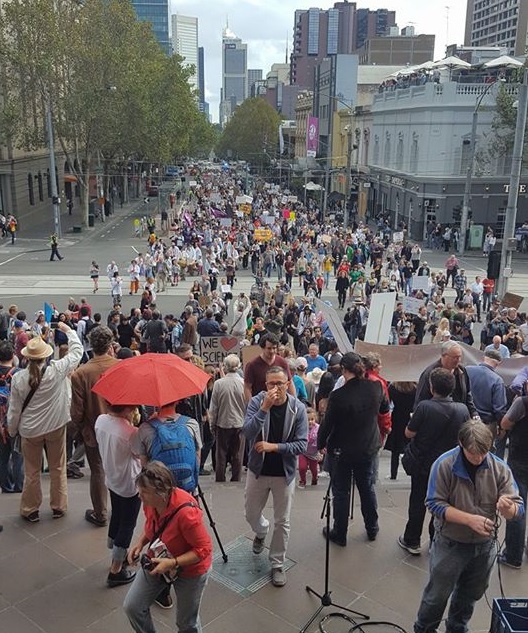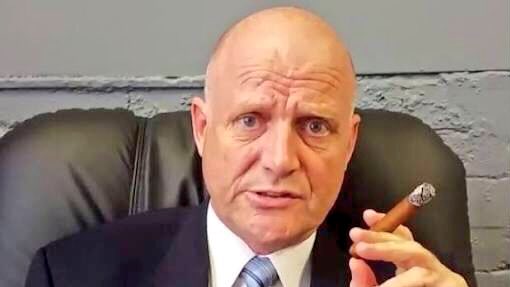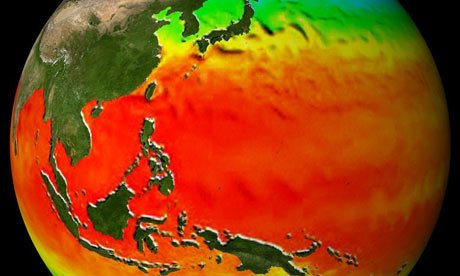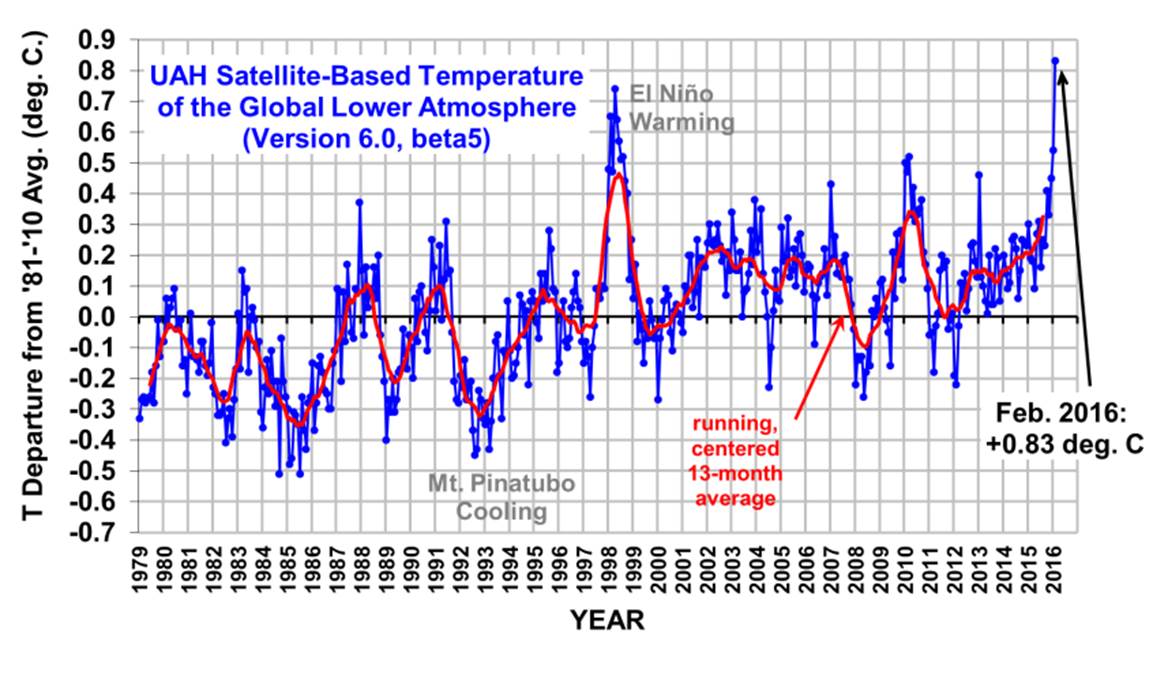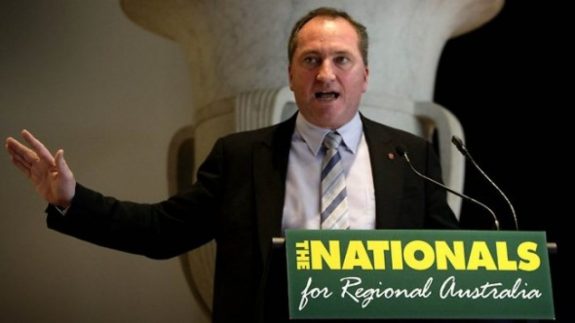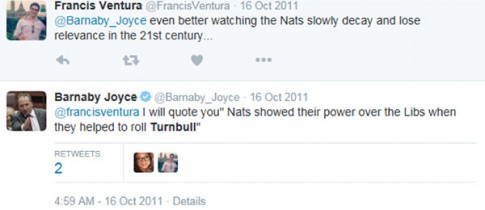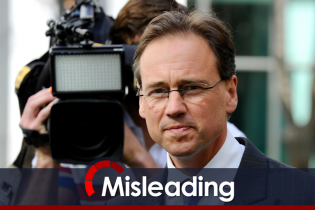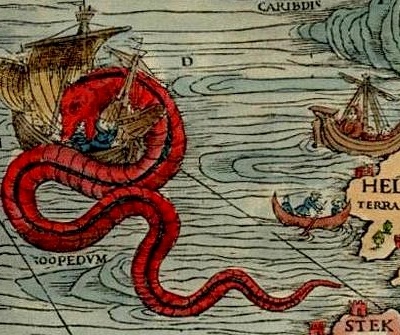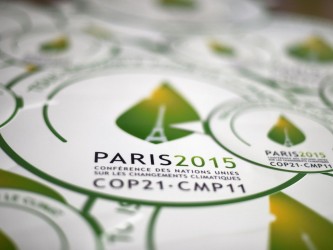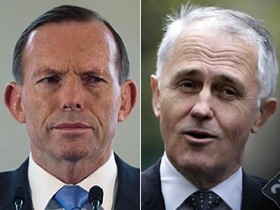A Climate Change Future
Predicting the future is a no-win scenario. There are so many variables that virtually anything is possible. Futurism inevitably becomes a matter of balancing likely outcomes from current trends, known factors and easily predictable future developments. Any attempt to predict the future will result in either one possible future or a range of possible futures. The one certain thing is that almost all the visions of the future must be wrong, because only one can be right.
This article offers one possible timeline for the next few decades, sketching environmental, socioeconomic, technological and military developments. This article considers the future between now and 2050 – well within the lifetimes of many reading this blog today. Consider it a thought experiment, designed to encourage consideration and discussion.
This timeline deliberately eschews disruptive events such as global pandemics, nuclear terrorism, asteroid impacts or the eruption of Yellowstone. These developments are possible, even (in the case of pandemic infections) likely, but placing them into a timeline would be entirely arbitrary, and the future may well unfold without them. Similarly, no deus ex machinae are included: there is no recourse to world-saving geoengineering or biotechnology developments. Altogether, what follows is a not unreasonable extrapolation of what the near future might hold for us, our children and our grandchildren.
These developments are all sourced in current literature and scientific research and linked directly to supporting evidence and analysis. These are processes that are happening now, and unless human civilisations immediately and radically change course, will continue to their inevitable end. An understanding of these likelihoods is necessary before we can honestly address the challenges of climate change, as the Paris agreements of 2015 recede into our past.
2016 – 2025
In the third world, civil unrest that arose in the early years of the 21st century continues unabated. Over the decades, the US and allies expend profligate effort to viciously subdue Islamic insurgencies in Syria and Iran, but new conflicts spring up more quickly than they can be put down. By 2025 the American people are thoroughly tired of continuing wars and American deaths and the US scales back its involvement, followed by its allies. The Middle East and large parts of the South-East Pacific dissolve into squabbles and conflict, swelling the ranks of refugees from tens of thousands into the low millions. The spark for all of these conflicts is increasing food scarcity and lack of drinkable water.
In Europe, the continued and growing influx of migrants contributes to the rise of right-wing political movements and a tightening of borders. In a desperate attempt to preserve the EU as member countries squabble over refugee policy and relative responsibilities, the Common European Asylum System border protection policy is progressively tightened and, slowly, refugee resettlement efforts give way to the establishment of giant refugee camps in barely habitable areas. The misery in these camps puts Australia’s Nauru to shame.
In Asia, China is pushing strongly for hegemony in the Pacific and the Arctic and Antarctic. Small chains of islands in the Pacific are claimed by China and forcibly pacified despite opposition. The territorial claims include oil fields and China doesn’t take long to start enforcing its ownership there. Other nations suffer as a result as they lose energy sources, but can’t challenge China. China is taken to international courts for a variety of cases, but while the legal proceedings drag on for years, China doesn’t hesitate to consolidate its hold, building artificial islands and industrial city-complexes as bases for its military forces. At the same time, enormous resources are poured into renewable energy generation. China begins to take a lead in solar and wind technology but does not share this technology easily. Large parts of China are becoming desertified at a rapid rate, with internal displacement of millions of Chinese into more fertile areas. Chinese cities, already congested, become ever more crowded and poor. China responds by commencing construction on new urban centres, completely powered by renewable energy, each built as industrial or research hubs.
Drilling for oil by US companies commences in the Arctic. However, China and Russia are also exploring here and not inclined to respect national borders and national territorial claims. This instability leads inevitably to clashes of forces, first between commercial enterprises (and, occasionally, environmental campaigners) and, later, military forces as all sides start patrolling the area with their own navies to protect the operations of their drillers. The distinction between US government and commercial entities begins to blur, to match the situation with both China and Russia. Meanwhile, the effects of climate change continue to accelerate. Tornadoes and freak storms batter coastal cities such as New Orleans, while unprecedented bushfires rage across large parts of the continental US and destroy many consecutive seasons of crops. Food prices, already increasing rapidly, escalate further.
In Australia, the narrow election victory of a Labor government in 2016 gives brief hope to many climate observers, but these hopes fade as it becomes clear that the new government, whilst not as outspokenly climate hostile as the Abbott/Turnbull regime it replaced, is still constrained by the narrative created by it and by the general attitudes of a climate-skeptical populace. Policy adjustments to reduce reliance on coal and oil and to increase renewables are slow and tentative, and by 2025 Australia is still heavily coal dependent and still exporting large volumes of coal and LNG. However, as predicted in the early parts of the decade, the demand for coal has decreased markedly as target markets accelerate their move towards renewables as well as their own domestic sources. Accordingly, the export price of coal and gas has fallen significantly, putting increasing pressure on Australia’s economy.
The economic downturn causes problems for Labor. The 2024 election sees a return to power of conservatives, but after eight years in the wilderness this new breed of liberals are far truer to the description and bring a raft of climate policies to the table, painting Labor as being “the friend of Big Coal”. By 2025, deep government “transition” subsidies to existing fossil fuel companies are on offer, but this disrupts the burgeoning renewable energy market which has until now been dominated by new entrants and innovators. 2024 sees the start of a process where most renewable energy companies and entrepeneurs will be bought up by BP, Shell, Exxon and others. By 2024, the first generation of university leavers, beneficiaries of Labor’s education investments, are graduating and entering the workforce.
It is likely that the first off-Earth colony will be established on Mars. Manned exploration of near-earth asteroids is either planned or commenced.
2025 – 2050
Rising sea levels, declining rainfall and frequent heatwaves are combining to turn vast swathes of South Asia uninhabitable. Asian and African countries are slowly but surely depopulating, both through climate refugee immigration and through deaths to disease, dehydration and starvation. Climate refugees are now an unstoppable tide numbering in the millions, swamping Europe as they arrive daily by the thousands. The EU is attempting to enforce borders with paramilitary forces but the refugees are too desperate and borders too expansive to be successfully patrolled.
Europe is now populated by two subgroups: Citizens and non-Citizens. Two parallel economies now exist. The grey economy is populated by and largely serves illegal immigrants. Not being covered by social support or healthcare from European governments, immigrant populations look after their own needs as much as possible, but are treated as second-class citizens. Crime, while still low on a per-capita basis, has exploded and public areas are now constantly patrolled by heavily armed police forces.
Populations already strongly influenced by hard-right governing parties, the first pogroms of the 21st century commence in some European countries.
In Asia, territorial wars are breaking out. Some are short skirmishes but the whole region is a simmering pot of conflicts. North Korea annexes South; without the US being willing to come to the aid of the South, the North has military superiority. However, within a few years the unified Korea is on the verge of collapse as, rather than benefiting from the economy and technology of the South, the whole of Korea starts to devolve towards its conquerors. By 2050, Korea attempts military expansion elsewhere but fails in its attempt at imperialism, and Korea collapses into a failed state. Japan is now fully self-sufficient, imports no oil and is falling behind economically; however, powered almost entirely by nuclear, the populace is relatively content. Rising sea levels are a concern for Japanese policymakers and resources are poured into levies and protection efforts. China is aggressively advancing its space exploration program and has a permanent settlement on Mars (and one on the Moon). It is starting to mine asteroids for rare minerals and metals.
China’s investment is starting to pay off, with thousands of high-level scientists and engineers living in custom-built technology cities, many completely enclosed in atmospheric domes: technology developed for their Mars colonies is now adapted for use on Earth. Inland desertification is continuing and food production is the country’s biggest ongoing concern. Coal is completely phased out for energy generation. At the same time, laws are passed banning export of fossil fuels. China begins construction of enormous enclosed farms for fish and crops, and continues an aggressive program of purchasing arable land in Australia and other locations. These efforts are now meeting with resistance as other governments see the signs but global courts and national economic systems are slow to react.
The global oil crisis plunges America into a deep depression, as the price of oil extraction climbs to make fossil fuels uneconomic. Attempts are made to leverage renewable and distributed power generation, but the process has been too slow and costs are extreme: the transition was not accomplished while energy was cheap. The US reduces its military spending to focus on a new insular approach – gone is the “muscular diplomacy” doctrine, as the government simply can’t afford to continue it and still put the resources into decarbonising the economy. Strong legislation is drafted to recraft the economy, putting caps on corporate and individual profits and ensuring a greater proportion goes to government revenue. Rebates and exceptions are drafted if individuals put significant resources into approved renewable energy projects. Belatedly the US starts subsidising renewable energy generation programs, but the oil crisis puts a significant brake on these efforts. Exacerbating the concerns for America, many of its cities are slowly becoming too hot for habitation. Americans still live in New York and Washington, but the hotter climate is having a measurable impact on productivity.
By 2030, China has banned the use of coal for energy generation, closing one of Australia’s major export markets entirely. India is advanced in its push to renewable energy and domestic coal sources, and the majority of Australia’s export coal has no buyer. The price of coal-fired energy in Australia plummets, putting downwards pressure on renewable energy research and take-up; nonetheless, major coal miners go out of business. The Australian economy is in terminal decline with high levels of unemployment nationwide and continual government deficits. New political microparties are in the ascendancy as both Labor and the Liberals suffer from public dissatisfaction, but the microparties do not have the strength or discipline to govern for the country’s future; governance devolves into a multitude of partisan interests, populist policies and pork barrelling. Australia has a brief advantage from an influx of technology students, but with few high-tech companies to employ new graduates and a new conservative government reluctant to fund placements and subsidies, many are forced to seek work overseas.
Some parts of Australia are becoming difficult to live in: the vaunted “New North” program is stalling due to high levels of heat stress, regular flooding and low productivity due to high wet-bulb readings. Towards the end of this period, the collapse in farmland, the continued sale to China and others of food-producing territory, and lowering aquifers and water levels are major concerns. Food prices are increasing. Meat, in particular, is becoming too expensive to eat regularly, and most Australians’ diets now include less meat overall. The 2040s see the last of the baby boomers retiring. Government revenue is insufficient to pay for comfortable social security for many, and the ranks of the elderly poor are swelling. Healthcare is also overstretched and death rates among both the young and the elderly are rising.
Beyond 2050
The world after 2050 may appear, to our 2016 eyes, as a dystopia, but this is no fantasy. There are no happy endings in store. The seeds which are planted over the next thirty years – both good and bad – will direct the fate of humanity as the state of the planet Earth continues to deteriorate.
By the 2050s, the Amazon rainforest is in irreversible decline. Deforestation by humans, combined with wildfires exacerbated by climate change, have had an irreversible effect. The eventual death of the rainforest is now a certainty, and as the forest itself plays a major role in regulating the planet’s climate, its loss is one further accelerant to climate change.
The most immediate outcome is the emergence of major human diseases. As climate change pushes humans and remote insect and mammalian species into direct contact and conflict, new animal-to-human diseases emerge with alarming regularity. Fortunately, most of these diseases are suppressed before they become airborne and cut a swathe through remaining human populations, but each new disease emergency has the potential to kill millions.
International flight has been curtailed: a combination of oil shortage and punishing carbon restrictions means that jet fuel is too expensive. There’s nowhere to go, in any case: people now want to escape tropical locations with their daytime temperatures in the 40s, rather than travelling there for holidays. The Great Barrier Reef has been dead for decades, and the annual vacation overseas is now, except for the very wealthy, an indulgence of the past.
By the second half of the 21st century, death from starvation is one of the major killers of humans. Large swathes of Asia, Africa and central Europe are becoming quickly depopulated. Deserts are spreading across the United States midwest, and it is likely that at some point in the century, one or more States may secede from the union. By 2100, it seems likely that the United States will be united no longer.
Disunity in the former European Union is no less severe. Pressures over resources and land, particularly water, lead to armed conflicts. The European wars of this era are localised and in many cases informal, but they are wars nonetheless. Some smaller countries are either annexed by their neighbours, or left without sufficient water resources to feed their own peoples. Other European countries are dealing with their own civil wars or popular uprisings, ostensibly on grounds of race or nationality, but triggered by food and water shortages caused by climate change.
By the late 21st century, capitalism as we know it will have been largely replaced by a kind of socialism. The loss of the oil economy has the effect of making individual prosperity much more difficult, as a large proportion of energy generation comes from state-owned solar and wind farms that dwarf those run by private concerns. Continued and growing pressure from an ever-expanding base of unemployed citizens requires an ever-increasing investment into social security. Governmental caps and curbs on individual profit gradually metamorphise into a socialist structure, and the most prosperous in society receive an increasing proportion of their windfall gains in non-monetary forms.
By the time 2100 arrives, it is likely that our planet will be harsh and unforgiving, covered in billowing deserts and rising oceans. Sea levels will continue to rise, unstoppably, for the next three hundred years at least, and by the time this process is over they will be a minimum of six metres higher than now. This will entirely cover the vast majority of current human cities, but sheer physics constrain how quickly this can happen, and human civilisation will have either collapsed or entirely changed by then.
If humans survive in this new world, most likely they will exist in artificial environments. These self-contained cities will utilise much of the renewable energy they gather for cooling, for water purification, and for agriculture. We are building a future where we will need to be terraforming our own planet in order to continue to live there.
Near-term future
The 20th century saw immense changes in human technology, civilisation and society. The development of mankind is an accelerating trajectory, and the first decades of this century have showed that we’re not slowing down. However, the effects of climate change place severe constraints on the direction of our species for the immediate future.
The one thing that can surely be said of the next hundred years is that the world in 2100 will be mostly unrecognisable to what we know today. The predictions made in this article are strongly supported by current trends and analysis, but may easily prove to be conservative. What we do know is that we will see this future coming to pass.
Humans aren’t great at planning for the long term: anything outside of our own lifetime is so remote that we don’t generally bear it in mind when making decisions. However, we are capable of making long-term plans for our own future – we consider our retirement needs, the schooling of our children, our investments into property. So consider this: those taking out a new mortgage now will see this future shaping around them. People are buying houses now that will be underwater before the mortgage is fully paid. Or, to put it another way:
This future is nine elections away.
